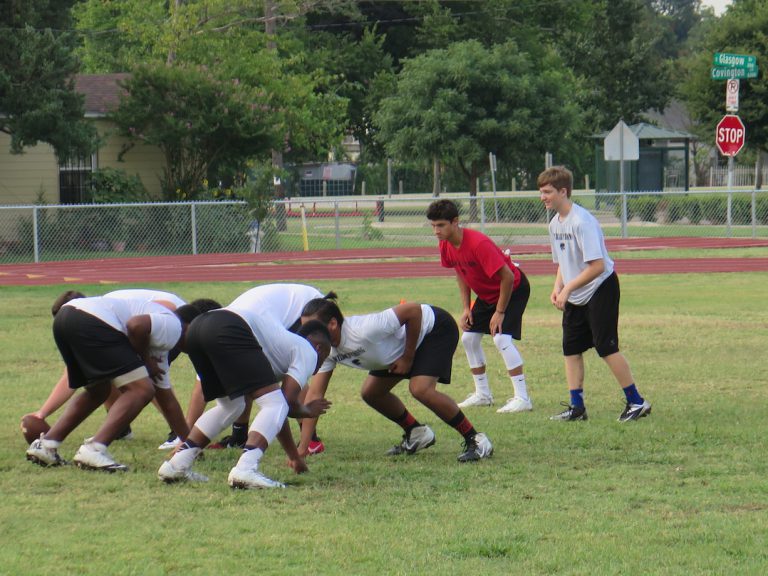As Dallas ISD football programs welcome their student-athletes back onto the field, the district’s coaches and athletic training staff are working together to ensure student-athlete safety is a priority during the soaring summer temperatures.
Heat illness is the leading cause of preventable illness in high school athletics. And high-intensity outdoor sports during the summer months poses the greatest risk for these heat-related issues.
Dallas ISD’s top athletics trainer, Phil Francis, advises coaches, parents and student-athletes to be proactive when returning to sports activities and training.
Last year, the Dallas ISD Athletics department placed licensed athletic trainers (LAT) at each of the district’s 22 comprehensive high schools to monitor the health and safety of the district’s estimated 10,000 student-athletes. A $3 million proposal approved by the district’s Board of Trustees in 2013 funded the athletic trainers.
“A licensed athletic trainer is the first line of defense against catastrophic injury or death in youth sports,” said Francis, whose staff offers emergency care, injury prevention, hands-on care and medical coverage for practices and games.
The LATs have the ability to add water breaks at practices, call off practices due to extreme conditions, or recommend lighter practice gear during a workout session. In addition, the University Interscholastic League and the National Federation of State High School Associations have disallowed practices to take place between noon and 6 p.m. during the first two weeks of the high school football training season.
Francis encourages coaches to work with their LATs to monitor the weather, schedule water breaks every 20-30 minutes of the workout, and allow unlimited access to water during practices.
In addition, LATs and coaches are educated on signs and symptoms of heat-related illness such as heat cramps, heat exhaustion, and heat stroke.
Francis encourages student-athletes to remain active while in off-season to reduce the shock of returning to high-intensity training once pre-season training commences.
“The key to heat-related illness prevention are hydration and rest,” Francis said. “Drink water prior to your workout, drink water or a sports drink during practice and water breaks, get plenty of restful sleep and eat nutritionally balanced meals.”

